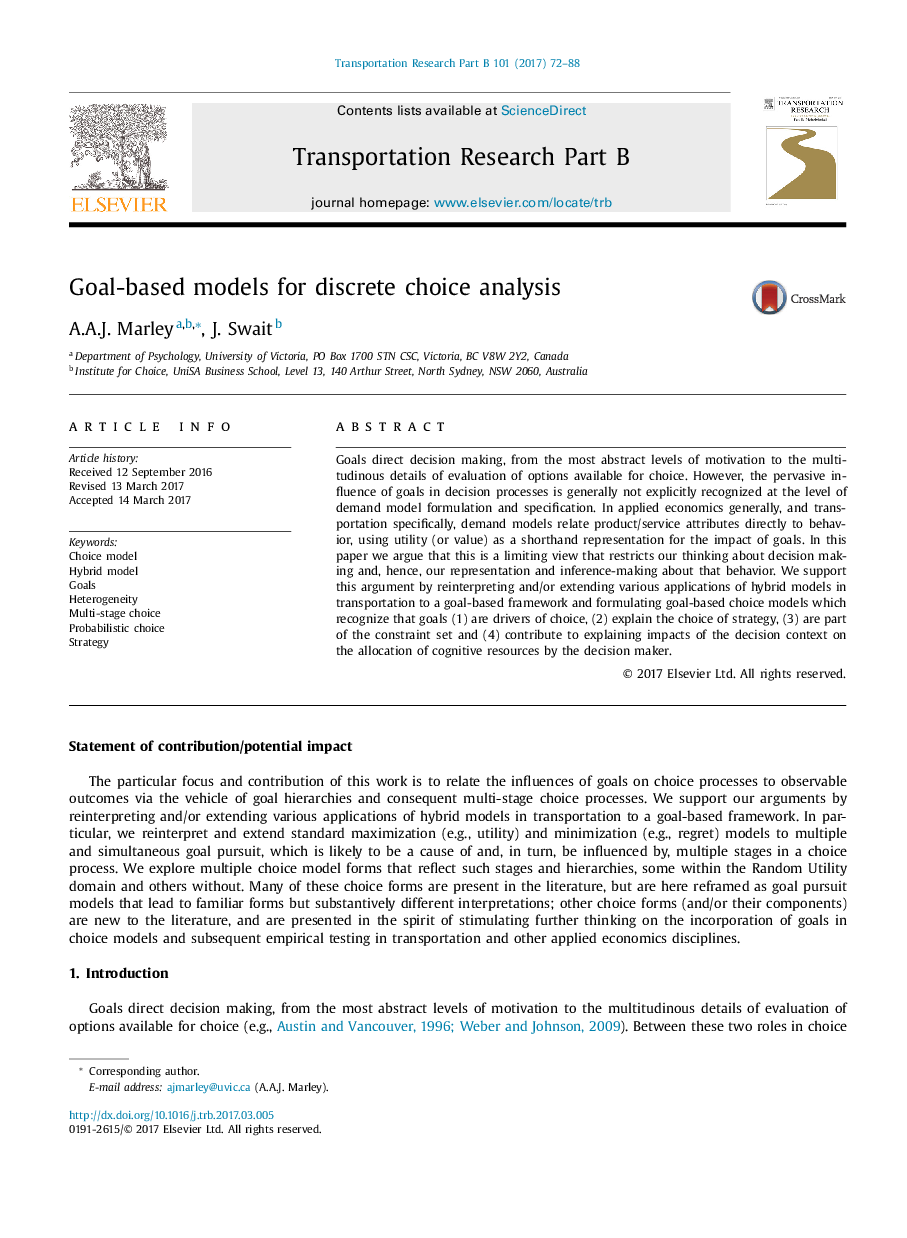ترجمه فارسی عنوان مقاله
مدل های مبتنی بر هدف برای تجزیه و تحلیل انتخاب گسسته
عنوان انگلیسی
Goal-based models for discrete choice analysis
| کد مقاله | سال انتشار | تعداد صفحات مقاله انگلیسی |
|---|---|---|
| 91365 | 2017 | 17 صفحه PDF |
منبع

Publisher : Elsevier - Science Direct (الزویر - ساینس دایرکت)
Journal : Transportation Research Part B: Methodological, Volume 101, July 2017, Pages 72-88
ترجمه کلمات کلیدی
مدل انتخابی، مدل ترکیبی اهداف، ناهمگونی، انتخاب چند مرحله ای، انتخاب احتمالی، استراتژی،
کلمات کلیدی انگلیسی
Choice model; Hybrid model; Goals; Heterogeneity; Multi-stage choice; Probabilistic choice; Strategy;
ترجمه چکیده
اهداف مستقیم تصمیم گیری، از سطوح انتزاعی انگیزه به جزئیات فراوان ارزیابی گزینه های موجود برای انتخاب. با این حال، نفوذ فراگیر اهداف در پروسه های تصمیم گیری به طور کلی به طور صریح در سطح فرمول بندی و مشخصات مدل تقاضا شناخته نمی شود. در اقتصاد کاربردی به طور کلی و به طور خاص حمل و نقل، مدل های تقاضا، ویژگی های محصول / خدمات را به طور مستقیم به رفتار، با استفاده از ابزار (یا ارزش) به عنوان نمایندگی کوتاه برای تاثیر اهداف، مرتبط می کنند. در این مقاله استدلال می کنیم که این یک دید محدود است که تفکر ما در مورد تصمیم گیری را محدود می کند و بنابراین نمایندگی و استنباط ما در مورد این رفتار است. ما از این استدلال با تفسیر و / یا گسترش برنامه های مختلف مدل های هیبریدی در حمل و نقل به چارچوب مبتنی بر هدف و ایجاد مدل های انتخابی مبتنی بر هدف که اهداف (1) را راننده انتخاب می کنند، (2) انتخاب راهبرد را توضیح می دهیم ، (3) بخشی از محدودیت هستند و (4) کمک به توضیح اثرات بستر تصمیم برای تخصیص منابع شناختی توسط تصمیم گیرنده.

